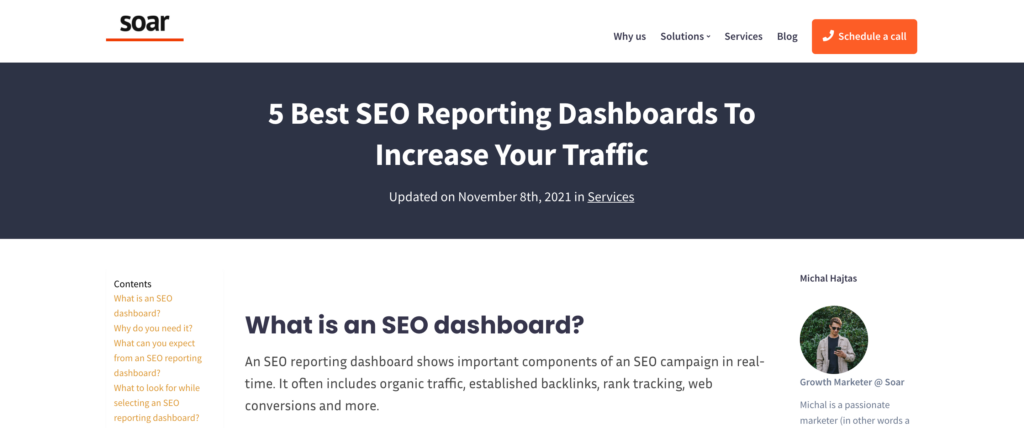Complete guide on how to start a blog and succeed
Blogging is an extremely powerful way to promote your brand online. In fact, over 86 percent of content marketers use blog posts as part of their marketing strategy.
If you think that blogging is just a waste of your resources, then check out these statistics:
- 60 percent of consumers consider blog posts as vital factors in their decision-making process
- More than half of content marketers report that creating a blog should be a top priority
- Over 409 million people visit more than 20 billion pages every month
- Companies with an online blog create over 67% more leads per month than sites without
Startups are often intimidated about starting a blog. Some of the reasons they cite include:
- Blogging takes a lot of time and resources
- They don't have a good enough writer to create a quality blog
- The additional online traffic they receive doesn't seem worth the effort
- It's hard to publish articles relevant to the industry regularly
Did you know?
There are over 600 million blogs out of 1.9 billion websites in the world. Many experts say the number of blogs already crossed 1 billion blogs...
While these reasons may hold some truth, these should not stop you from trying out blogging. Here are some reasons why you should start a blog for your business:
<strong>Why should you start a blog?</strong>
<strong>Promote your brand passively</strong>
Unlike email and social media marketing, blogging isn't an aggressive marketing strategy. It doesn't involve outright promotion of your products or services.
The advertising comes through subtle brand mentions. Sales-y talk is generally withheld in favor of quality and insightful content.
Blogs also act as a virtual space for you to comprehensively discuss the products/services you provide, their benefits, who it's intended for, and why they should buy it.
<strong>Boost your SEO ranking and online traffic</strong>
Blogs provide a significant boost to your SEO ranking. The #1 source of traffic for blogs is organic traffic from Google.
That means you won't have to spend so many resources on your marketing strategies. Site visitors will come to you naturally, thanks to Google.
When your website comes with a blog, in the eyes of search engines, the quality of your site exponentially improves. Google's current search engine algorithm considers content as a huge ranking factor.
Once you have a blog, make sure to optimize your content to check the rest of the ranking factors.
Read: Soar's Top 5 Affordable SEO Services
<strong>Establish your brand authority</strong>
Blog posts allow you to demonstrate your vast knowledge in the industry. This is where you flex your brain. Write high-quality, relevant, and insightful articles.
When readers realize that you know what you're talking about, they will constantly come to your site for information. Your name is now immortalized as an industry expert.

<strong>Generate a loyal following</strong>
When you're considered an authority, you generate a loyal following. You will see the comments section becoming more and more active as your followers and viewers grow. Use your newfound position to convince your audience into purchasing your product/service subtly.
You can also encourage them to refer you to their peers. Word of mouth and referrals are effective ways to convert someone into becoming a customer.
<strong>Help your target audience</strong>
An essential benefit of having a blog is that you are adding value to your audience's lives. By incorporating helpful tips and advice along with relevant industry information, you are solving their queries and concerns.
In turn, this leads to a form of gratitude that is often repaid through customer transactions.
Are you convinced already? If so, then read ahead.
<strong>How to start a blog on your website</strong>
<strong>Choose a web hosting service</strong>
Before all else, choose a web hosting service where you will upload your blog. Most companies use WordPress or Wix. WordPress offers free and premium hosting services.
Choose your theme and customize how you want your blog to look. Remember to incorporate your branding elements, i.e., colors, logo, and font. You can also opt to integrate plugins to make your blog more dynamic.

<strong>List topics relevant to your industry</strong>
Create a list of topics that is related to your industry. You must publish only relevant blog posts. Writing about different subjects will confuse your readers. Worse, you will attract random online traffic with low chances of conversion.
<strong>Set an achievable content calendar</strong>
Be completely honest with yourself. Consider your workload and set an achievable content calendar. There's no shame in publishing only one article per week. The important thing is that it's consistent and follows a strict schedule. Make sure that you stick to the content calendar.
<strong>Research</strong>
Before all else, conduct extensive research on the topics that you want to write about. Read journals. Talk to the industry experts. Conduct experiments, if possible. A well-researched article boosts your credibility.
Speaking as a writer myself, it is also easier to write an article on a topic after reading about it. Take note that no matter how skilled you are as a writer, it will show if you're not familiar with the subject matter.
<strong>Write (or pay someone to!)</strong>
Now that you have done proper research, it's time to start writing. When writing a blog post, consider who your target audience is. Answer these questions so you can align your content correctly with the right reader:
- Who are my readers?
- What is their reading level?
- Do they have background knowledge of the industry?
- Can I use industry terms, or do I need to explain them?
- How busy are they, and what's their attention span?
- Will they prefer short- or long-form content?
- What call-to-action button should I use?
Are you more of a businessman than a writer? Why not hire someone instead? Or better yet, hire an agency. Soar offers various content marketing services to help startups with their blogs.
Hiring an on-site content writer is expensive and can be considered "too much" for a startup.
We provide strategic content optimized to improve your SEO rankings. Check out our Content Marketing packages here!
<strong>Promote your blog</strong>
The work isn't done yet. Don't let all of your efforts go to waste. Once your blog posts have been published, start promoting your blog. Release a newsletter, do an email blast, post them on your social media pages.
Jumpstart the online traffic to your blog through aggressive marketing. Once you have established your blog, organic traffic will follow.
Starting a blog is hard work, but the pros surely outweigh the cons. Be patient and give your blog some TLC. It will begin generating organic, online traffic and providing you with quality leads ripe for conversion in a couple of months.